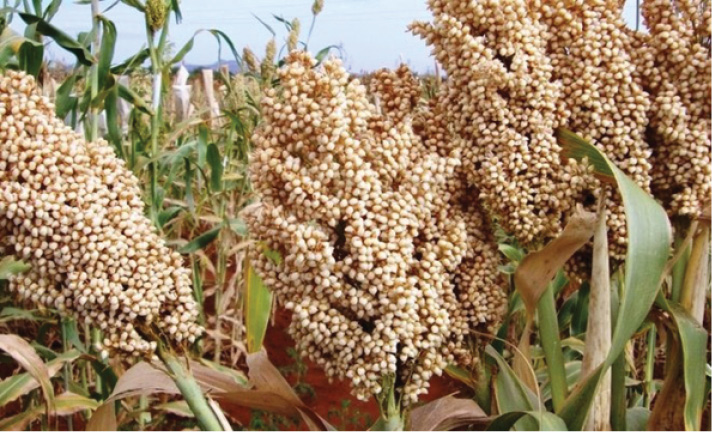Sorghum prices in Jigawa State remain high despite the fact that it is harvest season, leaving consumers disturbed.
At the grains market in Dutse, the state capital, traders and customers are surprised that the price remains high.
Musa Muhammad, a local farmer, says “It is surprising. We expected prices to drop during the harvest season, but they’ve remained high.”
For Jigawa’s sorghum farmers, the high price is a welcome respite because of the challenges they faced producing the crop.
- ‘Ukraine, Sudan wars trigger wheat seed shortage in Gombe’
- Nasarawa gov presents N382.57bn 2025 Budget
“We struggled to access fertiliser, and when we did, it was expensive,” explains Malam Mujittapha, a farmer from Gagarawa Local Government Area.
The high prices are particularly burdensome for consumers, many of whom rely on sorghum as a staple food. “I’ve had to reduce my consumption of tuwo (sorghum meal) because it has become too expensive,” laments Malama Aisha Ibrahim, a mother of five, in Jigawar tsada, Dutse.
Researcher and an Associate professor at the department of Agricultural extension, Federal University Dutse, Ado Garba Jangargari, who researched millet and sorghum and beans value chain in Jigawa State, identified key challenges facing farmers to include lack of capital, unstable prices and limited access to fertiliser.
He said promoting stability in sorghum price is closely related to food security. However, all efforts must be based on the existing factual economic conditions.
“We are trying to analyse the factors affecting the Nigerian sorghum market, such as rainfall information, considering that Sorghum is a staple food in Nigeria, more specifically in the northern region,” says Jangargari.
The Associate professor said the period of sorghum harvest is relatively concentrated in time due to this relationship. This leads to fluctuations in the price of sorghum over a short period, which complicates efforts to overcome the food security problem.
He said Northern Nigeria mainly depends on domestic production of sorghum to solve their food problems and that people also face food security-related risks from fluctuating market prices. “Therefore, we tried to identify some environmental impacts that stabilise the harvest-season sorghum pricing, which will contribute to addressing their food security issues.”
“For that purpose, we will start by clarifying the problems in the sorghum market. Why sorghum prices have refused to crash even at this period of harvest is mainly due to supply and demand dynamics. This simply explains the production and consumption trends. Major buyers are busy hoarding at their ware houses, consumer taste and preferences and then prices of other commodities and also sorghum farmers are now very careful due to fear of unknown hardship that they now prefer to sell just a part of the sorghum they produce.
“To address these issues, we recommend providing farmers with access to affordable loans, fertiliser subsidies and irrigation facilities.
“Establishing linkages with industries can also help stabilise prices,” he said.
As the harvest season continues, stakeholders are calling on policymakers to intervene. “The government should provide support to farmers and regulate market prices to ensure fairness,” Alhaji Yusuf Adamu, Chairman, Jigawa State Farmers Association, said.
Until then, Jigawa’s sorghum farmers and consumers will continue to feel the impact of high prices, despite the harvest.
Weekend Trust observed that about 80 per cent of Jigawa State’s population engages in agriculture. Sorghum is a staple crop in the state, accounting for 30 per cent of total crop production. The state produces over 1.5 million metric tons of sorghum annually.

 Join Daily Trust WhatsApp Community For Quick Access To News and Happenings Around You.
Join Daily Trust WhatsApp Community For Quick Access To News and Happenings Around You.

